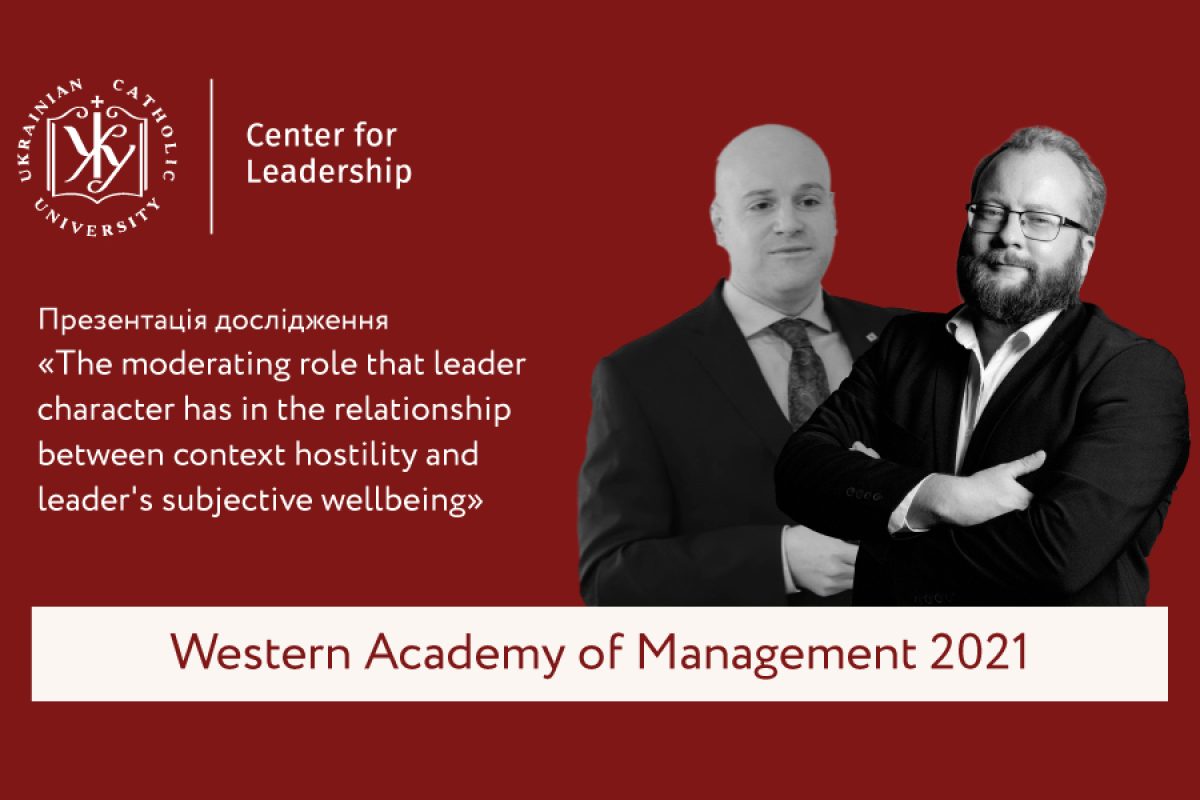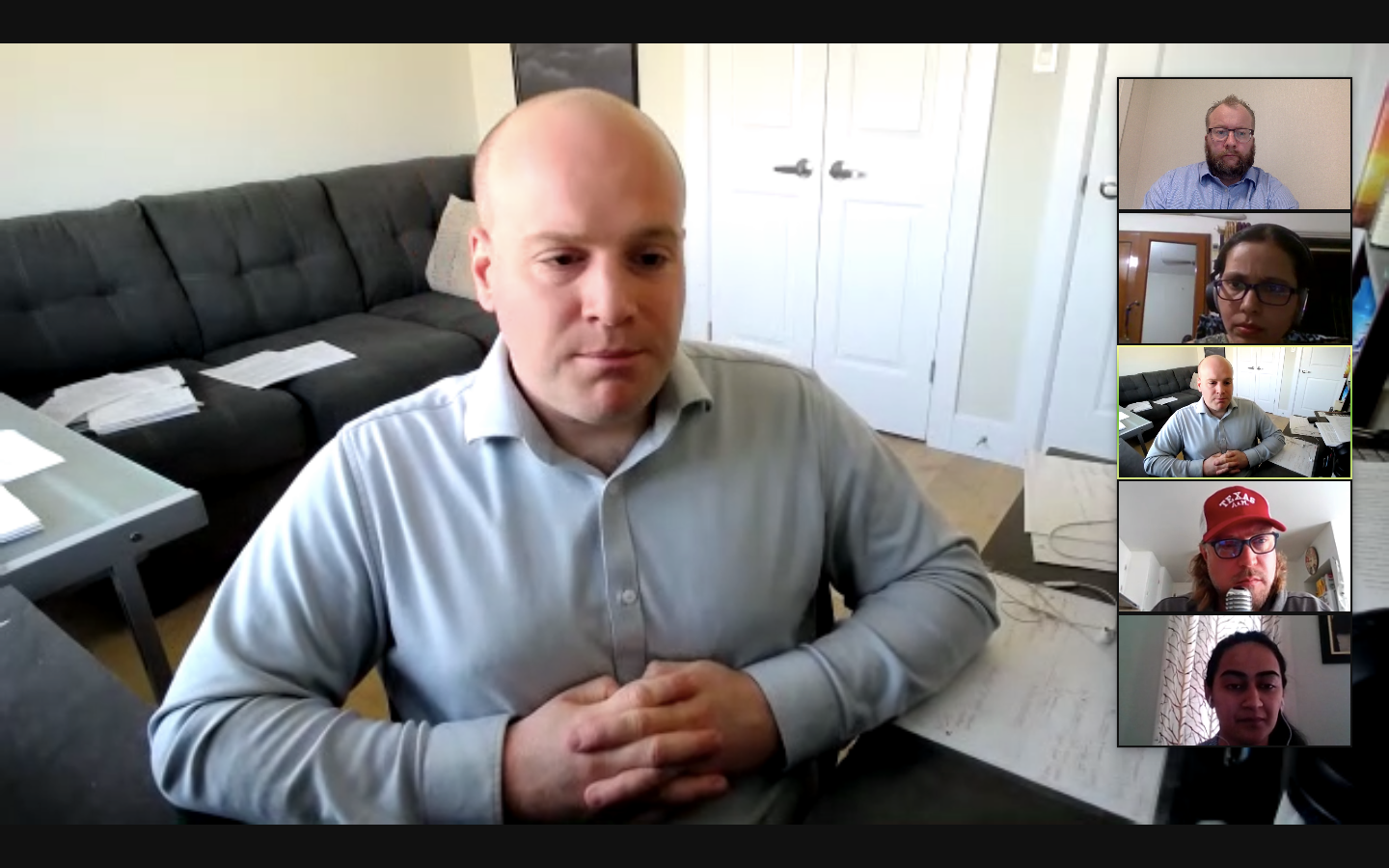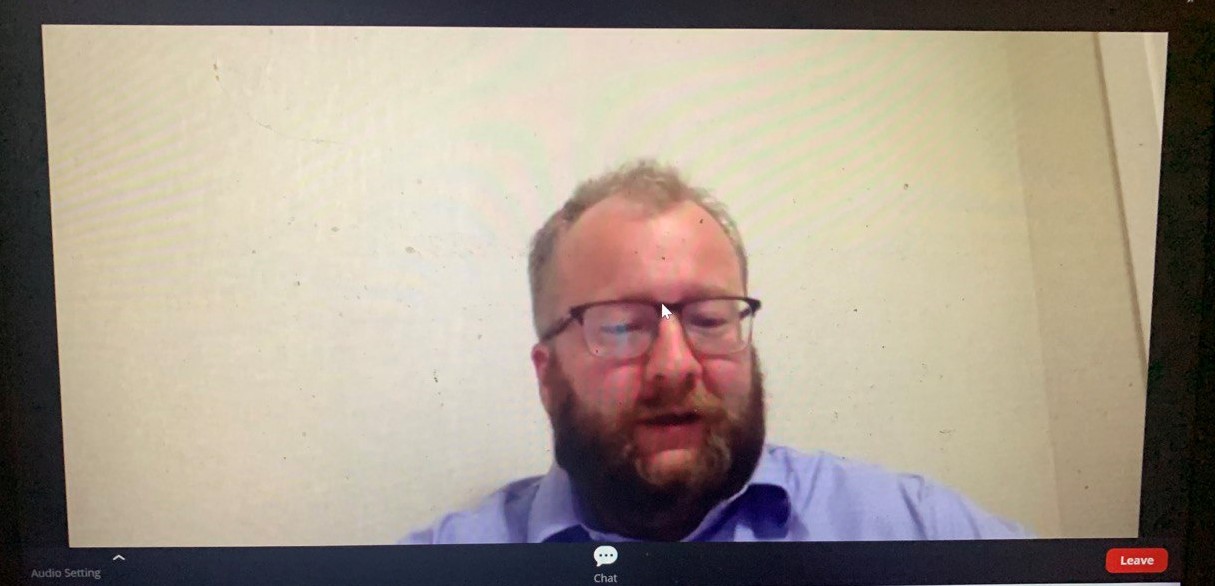
PRESENTATION OF STUDY RESULTS AT WAM 2021
Andrew Rozhdestvensky – CEO at Center for Leadership of UCU, and Lucas Monzani – Associate Professor of Organizational Behavior Department at Ivey Business School (Canada) presented the results of the study «The role of leader’s character in moderation of the negative relation between leadership context hostility and leader subjective wellbeing» at the Western Academy of Management 2021 conference. The event took place online on April 21-24.

Western Academy of Management is an annual conference designed to promote scientific progress in management theory and practice, conduct and support educational activities for the development of intellectual and operational leadership in management. The mission of the conference is also to promote research and improve the training process in the field of management. The theme of this year’s event is «Restoration». It became a benchmark in the selection of topics discussed at the conference. This theme [the transition from a state of trauma to a state of viability] has also become a symbol of the reality of today’s humanity.
Scientific conferences, such as the Western Academy of Management, are a great place to share and exchange ideas for both researchers and practitioners. After all, the practitioners can benefit from the insights, and the researchers can see how their research comes to life when they compare their theoretical hypotheses with practitioners’ experiences.
«It’s great to have the opportunity to meet scientists who study organizational leadership and management from all over the world and share the experience with them. It is especially important for the UCU Leadership Center team – Pavlo Khud, Khrystyna Dolna, Andrianna Bilash – to take part in such events. They further our personal development and help us mature not only as instructors but also as researchers. It greatly affects what is going to happen in the classroom,» commented Andriy Rozhdestvensky.

Looking back on 2019, the Center for Leadership of UCU completed a study entitled «The Role of a Leader’s Character in Moderating the Relationship between the Extreme Context of an Organization’s Activities and the Subjective Well-Being of Leaders». Its results were presented to the world scientific community on Friday, April 23, during the session «Leader character moderates the negative relation between leadership context hostility and leader subjective wellbeing.»
«With regard to the joint study between Ivey Business School and Lviv Business school, we were able to discuss with other leadership scholars the smaller details of our study. Further, prof. Rozhdestvensky provided with an excellent account of Ukrainian history and society and how it transitioned from the Soviet Union into the post-soviet era. This social and historical background was instrumental in explaining to western researchers how the «soviet» autocratic leadership approach shapes an organizational culture of silence, fear, and blind obedience. Information about such contextual details allowed the audience to understand better the contextual background of our study and the importance of studying leadership in hostile contexts. It always amazes me that regardless of where do leaders come from, or the geographical locations in which they operate, most leaders seem to face similar problems», says prof. Lucas Monzani.

Prof. Lucas Monzani also shares with us his opinion on data received:
«Our findings revealed that some Ukrainian military leaders must suffer from burnout and reduces wellbeing (when compared to business leaders). This is problematic, as many soldiers in the Ukrainian military might look at their leaders not only for guidance but also for inspiration. We know that leaders who are exhausted or even burnt out engage in sub-optimal decision-making. From this particular study, we found that developing a strength of character helps to improve the wellbeing of both business and military leaders. If military leaders make the wrong «judgment calls», their troops might suffer or even lose their lives. Something similar occurs for business leaders, as burnout has been shown to negatively impact their firm’s financial outcomes (e.g., EBITDA).
Therebefore, any wellbeing-promoting effort that can help to enhance leaders’ wellbeing should not be overlooked. Developing character could be one way to prevent leaders’ burnout, but also the Ukrainian society could support their military by acknowledging and socially rewarding the important service that its military provides to the nation. Similarly, business leaders could find an improved sense of meaning if they champion and engage in corporate social responsibility (CSR) initiatives . In this way, business leaders will feel they are contributing to a larger group of stakeholders. In consequence, engaging in CSR activities might provide business leaders with a larger sense of meaning than just protecting shareholder profit».
Therefore, participation in conferences and professional engagement, and interaction with other scientists is extremely important. This allows researchers to abstract their minds from their work and gain new ideas or insights.
Getting back to the results of the study, we need to remember that the character of the leader is a personal resource that can be used to avoid burnout and stress at work. An accomplished personality helps to increase, and in some cases restore the well-being of leaders.
The study also showed that, unfortunately, military leaders do not feel that they are making a great contribution to both the community and society. It is the duty of Ukrainians to change this perception through support, recognition, and gratitude.